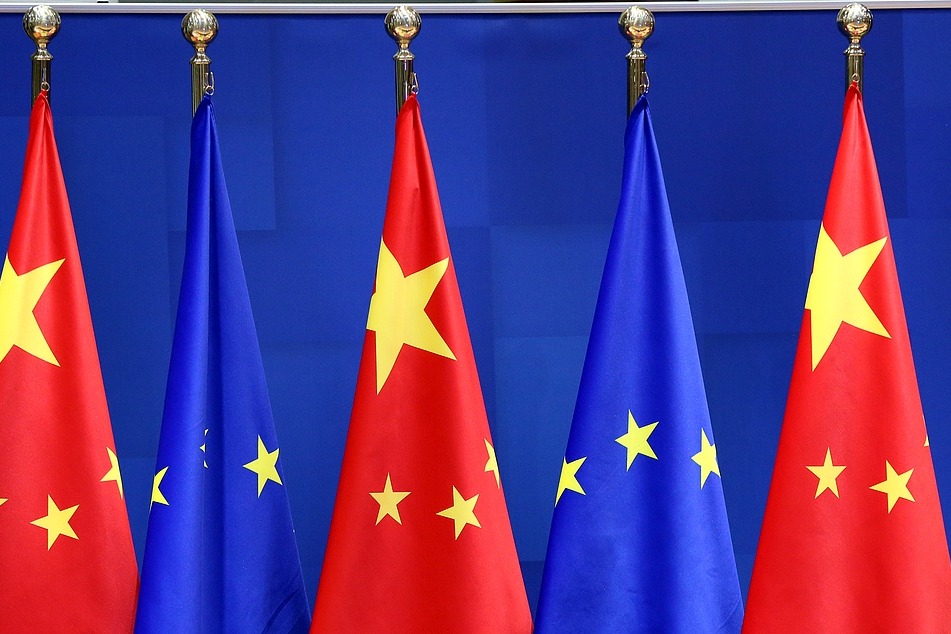Ballast blowup
US is over-securitizing economic issues to gain asymmetric advantages in its relations with China


The securitization of economic issues refers to the process by which a country, through the use of national security discourse, redefines economic topics as security concerns. When a country perceives that economic cooperation could weaken its overall interests, security considerations tend to take precedence over economic reasoning.
In such a context, economic and security issues are intentionally mixed up. Once a "ballast" for stabilizing bilateral ties, close economic and trade relations may instead be viewed as potential security threats and be used as justifications to disrupt or sever bilateral ties. At this stage, economic interdependence could also be leveraged as a tool to protect strategic interests in geopolitical rivalry.
Rapid economic globalization after the Cold War has fostered close economic interdependence among countries. However, this interdependence and the potential for mutual benefits have not fundamentally changed the logic of competition among states, particularly among major powers. In recent years, the world has been experiencing continuing turbulence and turmoil. The Israel-Palestine conflict, the Ukraine crisis, the United States-initiated trade war, as well as the regionalization and localization of global supply chains all underscore the growing contradiction between close economic ties and worsening political relations.
Against this backdrop, some countries have started to cut off, or even weaponize, mutually beneficial economic interdependence. Their ultimate goals are to contain the development of their rivals and strengthen their bargaining power in economic and security affairs.
The US' perception of a "China threat" is based on its judgement that the bilateral trade and economic relationship challenges its hegemony.
For a long time, both China and the US had viewed their economic interdependence as "ballast" stabilizing their political relationship, and shared a consensus on the balance between benefits and costs. During that period, political and security issues had little impact on their bilateral economic ties, which played a key role in easing tensions.
However, along with China's rise, tensions between the two countries have expanded from the political sphere into the economic and security realms. The US has grown increasingly dissatisfied with its relative gains from its economic interdependence with China, believing that the economic cooperation benefits undermine the US' overall strategic gains in the power competition.
As a hegemonic power, the US seeks asymmetric advantages in the economic interdependence, focusing more on relative gains than absolute ones. It has both the motivation and the means to achieve its power gains by overstretching the securitization of its economic relationship with China.
From the US perspective, China is the largest single contributor to the US trade deficit. Continued trade with China may further widen this gap, and potentially lead to the transfer of critical US technologies to China, further accelerating China's rise. At the same time, with the US holding an advantageous position in the bilateral economic relationship, China is more sensitive and vulnerable to any disruption in the economic interdependence. In the event of an economic conflict, China is expected to suffer greater losses.
However, China and the US have long been intertwined economically and are deeply integrated in global supply chains. If the US were to unjustifiably disrupt this relationship through aggressive economic measures, it would likely face backlash from domestic interest groups and the general public, provoke dissatisfaction among allies and strategic partners, and struggle to secure support from the international community.
Therefore, in its efforts to contain China through economic means, the US has focused on securitizing economic issues as the key approach to maintain its hegemony, justify actions, build consensus and enforce its agenda.
Looking back at the development of US-China political and economic relations since 2018, economic securitization has been a consistent feature of US policy toward China during both the Donald Trump and Joe Biden administrations. Even before the onset of trade friction in 2018, the US had already framed China as a growing threat in three major security documents: the 2017 National Security Strategy, the 2018 National Defense Strategy and the Nuclear Posture Review. These reports not only identified China as a major challenge to the US' prosperity and security, but also firmly established the notion that "economic security is national security".
Amid the trade conflict with China during his first term, President Trump launched Section 232 and Section 301 investigations targeting Chinese exports to the US, labeled China as a "strategic competitor", and repeatedly amplified the narrative of a "China threat".Citing the need to counter so-called economic aggression, the US imposed sweeping tariffs, restricted investments and aggressively pushed forward the process of economic decoupling with China.
The US approach to economic securitization has been increasingly refined throughout the Trump and Biden administrations. Today, its foreign economic policy has become more targeted and specific trade sectors are being decoupled from China and used to pressure it. This has created challenges for China's economy.
However, this unilateral approach has also led to higher inflation and greater welfare losses in the US than those experienced by China. It has also greatly disrupted global supply chain stability, sparked concerns among other countries about US overreach and threats to their economic autonomy, and significantly weakened trust in the US-led industrial chains.
With Trump's return to the White House, the US has been further intensifying its economic securitization strategy. In response, China must maintain strategic composure and adopt a long-term perspective to actively shape favorable conditions and work to sustain growth momentum.
To achieve this, China must thoroughly assess its sensitivity and vulnerability within the global dependency network and enhance its ability to respond to external risks and potential sanctions. At the same time, it should enhance its autonomy and control over critical technologies, optimize the structure of its industrial chains, diversify its markets and build greater resilience in the domestic economy.
China also needs to expand multilateral cooperation to foster a peaceful, stable and sustainable strategic environment. As an influential voice in the Global South, China should continue to advocate an open, cooperative and rules-based system for international economic governance, and promote the establishment of institutional checks on the overstretch of security. In doing so, China can contribute its wisdom and solutions to help rebuild the global trust system and reinforce the foundations for international cooperation.
Gao Cheng is vice-president of the University of Chinese Academy of Social Sciences. Bu Yanjun is a lecturer at the School of International Affairs and Public Administration at the Ocean University of China. The authors contributed this article to China Watch, a think tank powered by China Daily. Contact the editor at editor@chinawatch.cn.


































